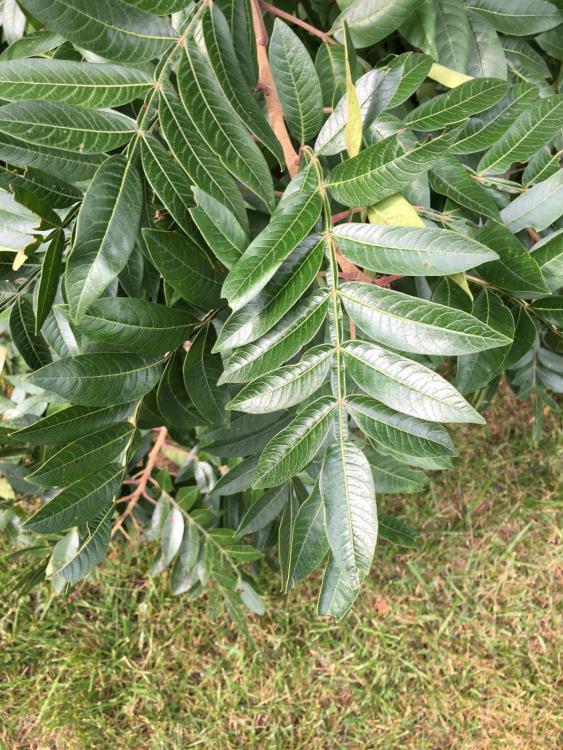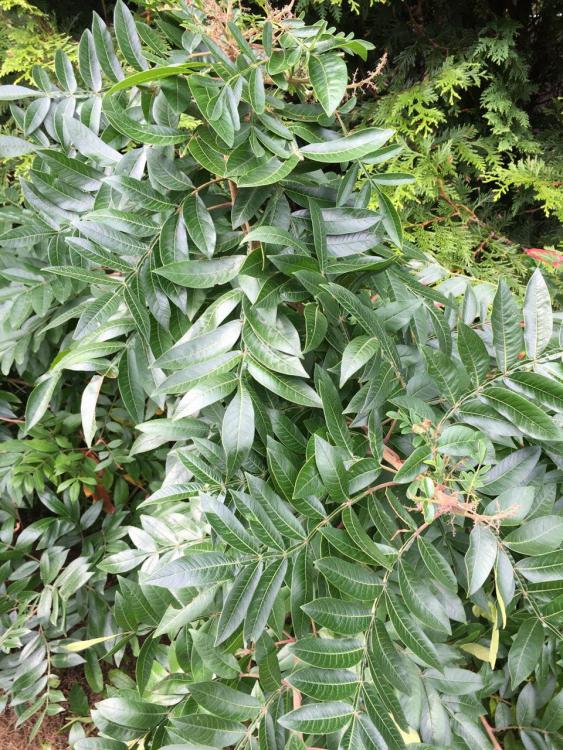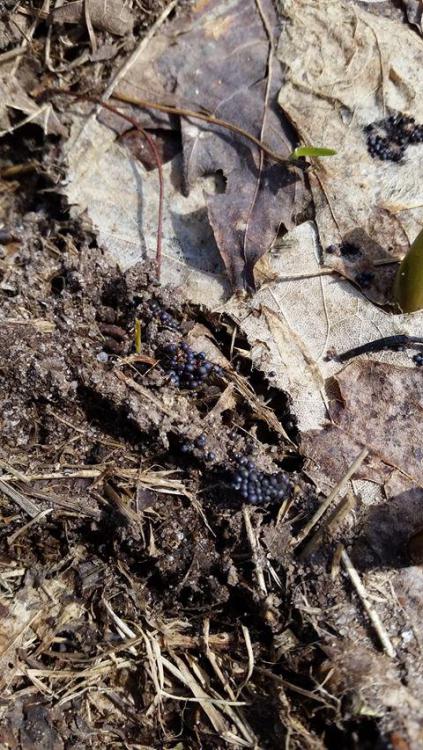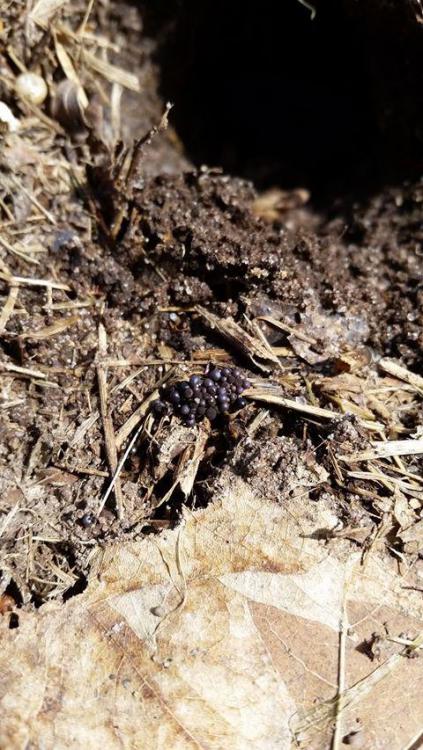-
Posts
525 -
Joined
-
Last visited
-
Days Won
3
Content Type
Profiles
Forums
Gallery
Downloads
Blogs
Calendar
Articles
Everything posted by Claire Peterson
-
Bid for Trucks word document By: Drew Rayner Bid for Trucks.docx
-
Treatment Sheet excel spreadsheet Treatment Sheet.xlsx
-
Survey Sheet excel spreadsheet Survey Sheet.xlsx
-
Monitoring Sheet excel spreadsheet Monitoring Sheet.xlsx
-
Data Reporting Workbook excel spreadsheet Data Reporting Workbook.xlsx
-
Strike Team Startup Needs word document Strike Team Startup Needs.docx
-
Responsibility of a Sprayer word document Responsibility of a Sprayer.docx
-
Herbicide Information Sheet excel spreadsheet Herbicide Information Sheet.xlsx
-

General self-check for commercial firms
Claire Peterson posted an article in Additional Forms and Resources
General self-check for commercial firms pdf file General self-check for commercial firms.pdf -
Quick google image search identified it as Winged sumac but I wanted to see if anyone had any other opinions as to what it might be. Currently growing my parents yard in CT...
-

What invasive could this be?
Claire Peterson replied to DGregori's topic in What is it? Species Identification Help
I am certainly not a plant expert but maybe mugwort (Artemisia vulgaris) or Wild chervil (Anthriscus sylvestris) ? I am sure our CISMA coordinators will be able to properly identify this species! @Katie Grzesiak -
@Christina Baugher - Thank you for the assistance.
- 5 replies
-
- help
- identification
-
(and 1 more)
Tagged with:
-
@Christina Baugher - would the scat be small, like the size of sprinkles on a donut?
- 5 replies
-
- help
- identification
-
(and 1 more)
Tagged with:
-
Hi everyone, a Facebook user sent us these images of an unknown substance in her yard - eggs maybe? She had never seen something like before and was unsure what it could be.
- 5 replies
-
- help
- identification
-
(and 1 more)
Tagged with:
-
Just in case you are looking for more information on wild parsnip - I wanted to share with you some articles written by David Eagan, Honorary Fellow, Department of Botany, Univ. of Wisconsin-Madison. https://dnr.wi.gov/wnrmag/html/stories/1999/jun99/parsnip.htm https://dnr.wi.gov/wnrmag/2017/06/Burn.PDF https://dnr.wi.gov/wnrmag/html/stories/2000/jun00/parsnip.htm
-
Join us for this day-long workshop to learn from researchers and forest health professionals about the latest news on invasive forest pests and pathogens that threaten Michigan’s forest health. When: Thursday, March 5, 2020 (9am-3:30pm, doors open 8:30am) Where: Kellogg Hotel and Conference Center, 219 S. Harrison Rd, East Lansing, MI, Room 105AB https://kelloggcenter.com Cost: $20 per person...includes refreshments and lunch Registration Link: https://events.anr.msu.edu/ANRforestinvasives/ Presentation topics*: • Spotted lanternfly - it’s on the move, and you can help • Oak wilt - current research on the beetles and fungus that cause oak wilt • Hemlock woolly adelgid - research update on the life history, survival and control • Asian longhorned beetle - lessons from Ohio • The MISIN reporting website - how and why to report, how reports are used • Michigan forest health report - from DNR forest health specialist • Proliferation of environmentally friendly pesticides - are they really? *This event has been approved for 4.5 Category 1 SAF Continuing Education Units (CEU’s) *This event has been approved for 4.0 MDARD Pesticide Recertification Credits Registration at the door will be on a first come first served basis. Michigan State University is committed to providing equal opportunity for participation in all programs, services and activities. Accommodations for persons with disabilities may be requested by contacting the Julie Crick, the event contact, two weeks prior to the start of the event (February 20, 2020) at 989-275-7179 or at crickjul@msu.edu. Requests received after this date will be honored whenever possible. Register today! ANR_Week_Flyer_2020.pdf
-
Hi @Emily Messick - Thanks for the heads up, these links should be working again
- 3 replies
-
- partner meeting
- misc
-
(and 5 more)
Tagged with:
-
Hi everyone, thanks to Erica with the Oakland County CISMA, I wanted to let you know that after a discussion with Phyllis, we decided to add European frog-bit to the list of priority species. Priority species do not show up in the drop-down menu when you want to create a new alert and are not included in the alerts if you select the option for species reports for all of Michigan or a specific county. In order to receive the alerts of EFB, you will need to be manually added to the alerts table. If you would like to receive alerts for EFB please either post here or send me a private message / e-mail so that I can check the list to see if you are already signed up for the alert or if you need to be added. Thank you.
-
Phragmites Distribution Map: https://asets-msugis.opendata.arcgis.com/app/7d96bf3437d14224a61cfa0489f1bf55 Brown Marmorated Stink Bug Distribution Map: https://asets-msugis.opendata.arcgis.com/app/162258f64bfd4f3c835c3638e68d6d7b Phragmites Distribution Dashboard: https://msugis.maps.arcgis.com/apps/opsdashboard/index.html#/953fea85d769485e9e7e3f998579ecd5 Brown Marmorated Stink Bug Distribution Dashboard: https://msugis.maps.arcgis.com/apps/opsdashboard/index.html#/99915c8aeb3c483da7e27d37a7c548e5
-
Saturday, June 15th, 2019 Lake St Clair Metropark Nature Center 31300 Metro Pkwy Harrison Charter Township, MI 48045 MISIN Workshop_2019.pdf





